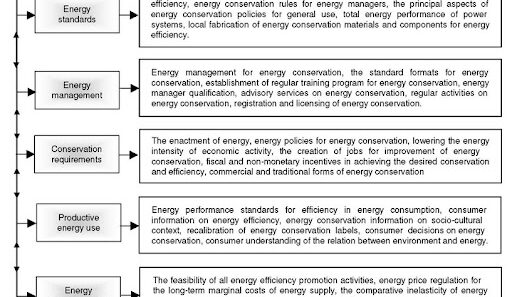In an era marked by escalating energy costs and intense scrutiny of environmental degradation, the intersection of energy conservation and economic prudence has become increasingly evident. The simple act of conserving energy not only alleviates pressure on natural resources but also yields significant financial savings for households and businesses alike. Numerous studies have pointed to the tangible benefits of adopting eco-friendly habits that effectively cut costs. This analysis will delve into the multifaceted dimensions of energy conservation, underscoring how such actions can lead to substantial economic advantages.
Energy conservation, in its essence, refers to the practice of using less energy to achieve the same or greater outcomes. The rationale behind this concept is straightforward: less energy consumption equates to reduced utility bills. The ramifications of this principle extend beyond immediate savings, embedding a culture of sustainability that fosters long-term financial prudence.
One common observation is that many consumers remain oblivious to the little changes they can implement in their daily routines. Shifting energy habits doesn’t necessitate transformative efforts; instead, adopting simple practices can lead to considerable savings. For instance, the diligent use of energy-efficient appliances can significantly curtail electricity consumption. These appliances are designed to operate more effectively than their traditional counterparts, often consuming a fraction of the power. A household that integrates energy-efficient models finds itself saving hundreds of dollars annually—money that can be redirected toward savings, investments, or other essential expenditures.
Another critical element in this dialogue is the undeniable impact of insulation and weatherization. Many homes lose substantial amounts of heat during colder months and cool air during the summer due to inadequate insulation. By fortifying one’s household with better insulation, sealing gaps, and employing weatherstripping, homeowners can ensure their heating and cooling systems operate with greater efficiency. Less reliance on these systems translates to decreased energy bills—a phenomenon that becomes especially evident over the course of a year. The initial investment in these improvements often pays dividends in the form of long-term savings, making them a wise financial decision.
Moreover, transitioning to renewable energy sources, while it may appear daunting at first, can profoundly alter the financial landscape for many households. Solar panels, for example, provide a sustainable source of energy that can significantly diminish reliance on grid electricity. Although the upfront costs may be considerable, government incentives and decreasing prices of solar technology have made these installations more accessible than ever. Over time, the reduction in electricity bills and the potential for selling back excess energy to the grid can lead to impressive financial returns on investment.
It is also essential to consider how behavioral changes can contribute to energy conservation and, consequently, cost savings. Simple adjustments, such as turning off lights in unoccupied rooms, utilizing natural lighting, and employing programmable thermostats, can foster more mindful energy usage. The cumulative effect of these changes is often underestimated, yet they can result in a noticeable dip in energy expenditures. A concerted effort to cultivate awareness amongst family members about energy use can establish a culture of conservation that reinforces these habits.
Beyond the household, businesses too can experience substantial economic advantages through energy conservation initiatives. Commercial facilities account for a large percentage of energy consumption; therefore, adopting energy-efficient practices can yield significant cost savings. Implementing energy management systems, conducting energy audits, and investing in green technology can help businesses streamline their operations while reducing expenses. These savings can be reinvested into the business, enhancing competitiveness and, possibly, even unlocking new markets.
Investing in employee training programs regarding energy efficiency is also beneficial. Empowering staff with knowledge about sustainable practices fosters a culture of conservation that extends beyond individual actions. This collective effort not only contributes to reducing operational costs but can also enhance workplace morale and productivity, as employees share a common goal of sustainability.
While the immediate financial benefits of energy conservation are compelling, the longer-term implications merit consideration as well. Reduced energy consumption lessens the demand for fossil fuels, thereby diminishing the overall carbon footprint of a household or business. This process plays a crucial role in combating climate change, fostering healthier ecosystems, and securing a more sustainable future for subsequent generations. By prioritizing energy conservation, individuals and organizations engage in a conscientious strategy that aligns economic viability with environmental stewardship.
Furthermore, the promotion of energy conservation serves to stimulate economic growth through the establishment of green jobs. The shift towards renewable energy sources and sustainable practices necessitates an evolving workforce equipped with innovative skills. This evolution in job creation is critical in mitigating the adverse economic impacts of climate change while simultaneously supporting local communities.
In conclusion, energy conservation presents a dual opportunity: it acts as a catalyst for financial savings while simultaneously fostering a sustainable future. By embracing eco-friendly habits, individuals and businesses not only safeguard their financial well-being but also contribute to global efforts to combat climate change. The nuanced relationship between energy conservation and cost savings compels further examination, revealing the economic and environmental stakes involved. As society continues to grapple with the repercussions of climate change, the imperative to adopt energy-conserving practices cannot be overstated. The benefits are clear: save money, save the planet. The path forward lies in recognizing the power of small, intentional actions and their potential to create meaningful change.








